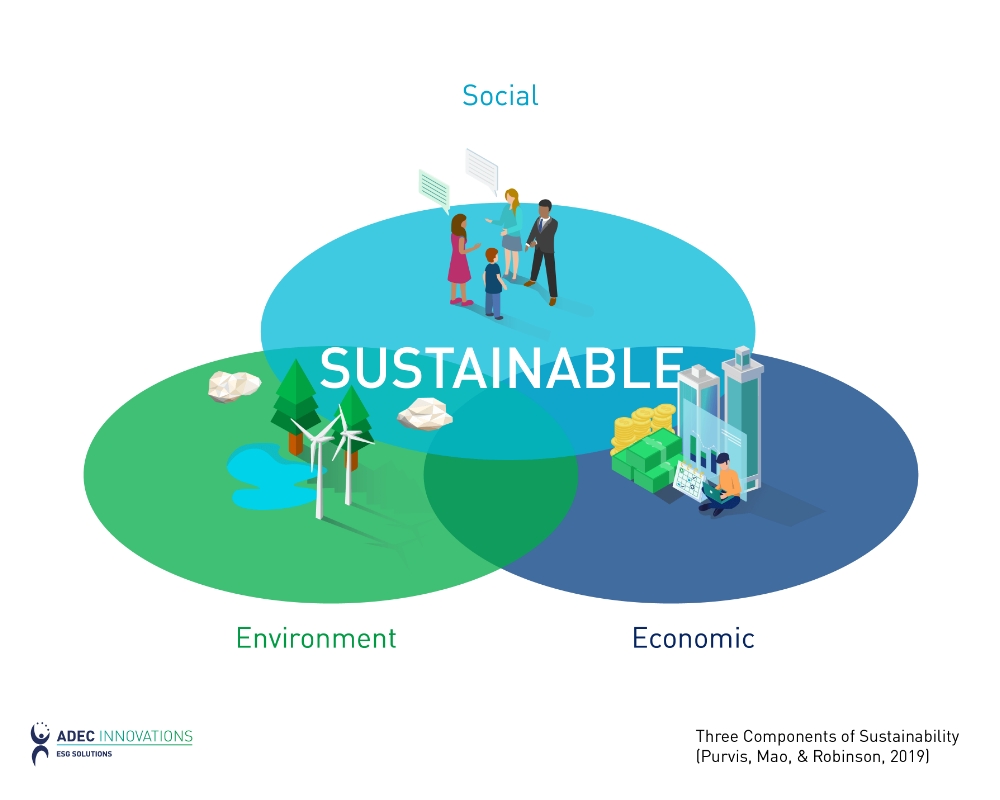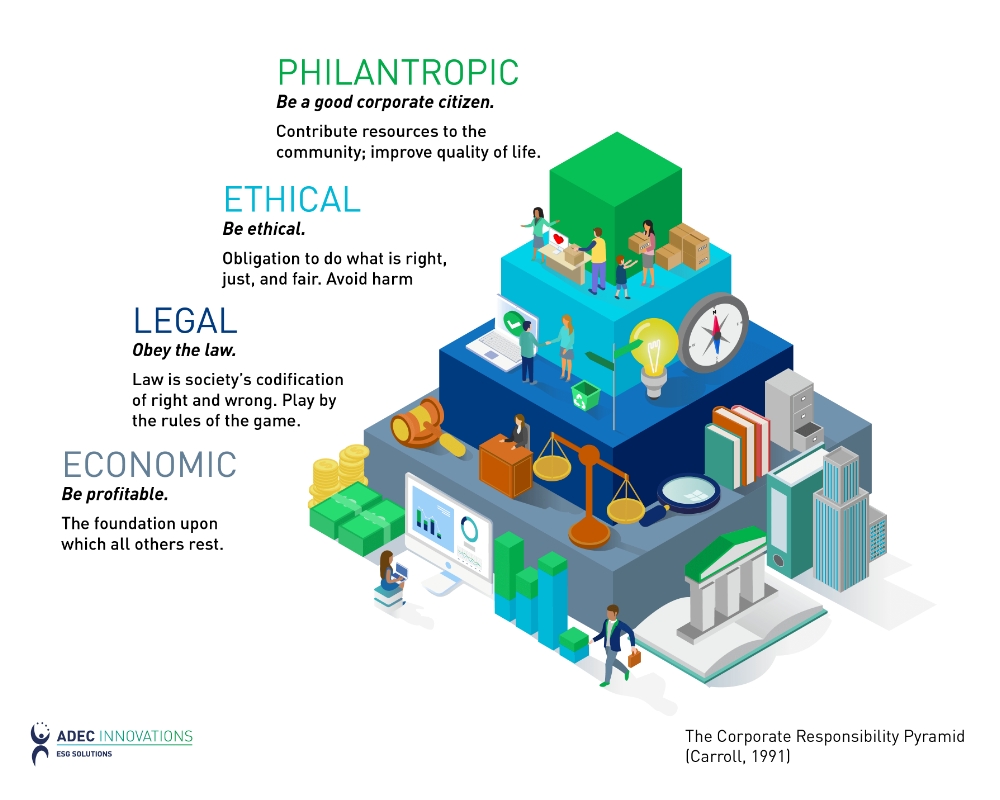What is the difference between social sustainability and social responsibility?
You have probably come across the terms “social sustainability” and “social responsibility” quite frequently in recent years. Whether in a corporate setting or in your local community, it is likely these terms have been described as goals to be aspired to. Perhaps you are aware that they relate to people’s wellbeing and the growing role of organizations to practice ethically, but you struggle to distinguish between them. Although often used interchangeably, there are some key differences to be aware of.
What is social sustainability?
Social sustainability is one of the three interrelated components of sustainability. For something to be truly sustainable, there must be equal consideration of social (people), environmental (planet), and economic (profit) factors. The social component of sustainability, at its most basic level, concerns the rights and wellbeing of all humans. In a business context, social sustainability encompasses a range of topics, including workplace diversity, fair labor practices, and positive community engagement. Social sustainability is a long-term, ongoing mission of ensuring social conditions and outcomes are optimized for generations to come.

What is social responsibility?
Social responsibility (sometimes called corporate social responsibility or CSR) refers to the ways organizations and governments should act on the overarching goal of social sustainability. As the word “responsibility” implies, it encompasses the role of these actors to ensure the upkeep of strong values and ethical behavior. While social responsibility is grounded in the same principles as social sustainability, it attributes organizations and other entities with accountability. In other words, under social responsibility, these entities are deemed “corporate citizens” who are obliged to do their part for society.1
While traditionally the primary responsibility of organizations has been to ensure the maximization of financial returns for shareholders, it has since become standard to also address and mitigate the organizations’ direct impacts on society.2 The rise of social movements and increased regulations on business in the 1970s and 80s particularly drove this shift, eventually giving birth to the “corporate responsibility pyramid”.

This pyramid categorizes the responsibility of business into four groups: economic, legal, ethical, and philanthropic responsibilities. While organizations will always strive to be profitable, they are increasingly required to consider the social aspects of good business too. By doing this, they contribute to the overarching concept of social sustainability.
Social sustainability and social responsibility have become popular over the past 50 years or so, following events such as the 1972 United Nations Conference on the Human Environment, and the 1992 Earth Summit in Rio de Janeiro. Events like these brought more awareness of the interdependencies between people, planet, and profit, leading to more ambitious social efforts under sustainable development agendas. Social sustainability and responsibility are reflected within the UN Sustainable Development Goals (SDGs), the UN Global Compact, and other international standards which recognize the business community as key drivers of social equity and justice.
How do social sustainability and social responsibility apply to business?
While social sustainability is a broad concept applicable to many aspects of society, social responsibility or CSR is a call to action for business. The gradual evolution of CSR has allowed for its expansion into all areas of corporate strategy, making it a vital endeavor for organizations in the twenty-first century. Genuine CSR is good for stakeholders, shareholders, and broader society; and, it also allows businesses to thrive and boost their reputation for their customers and the public at large.
As environmental, social and governance (ESG) issues have garnered significant attention in recent years, there has been growing pressure on every organization to adopt more socially sustainable and responsible practices. Major reporting frameworks (such as CDP, GRI, SASB and EcoVadis) incorporate social metrics. Similarly, investors are demanding that organizations incorporate ESG into their operations (See What is ESG Investing?).
Disclosure is, in itself, an aspect of CSR. Organizations can only be held fully accountable if they are publicly reporting on key topics such as workforce diversity, pay equity, and modern slavery risks. Investors and other stakeholders need this data to ensure action is being taken, as do ESG investing indices like ISS, MSCI, and Sustainalytics. Organizations must rise to the responsibility to improve their reporting and social performance and promote the social pillar of sustainability.
How can organizations improve their social sustainability and social responsibility performance?
Organizations that aim to become leaders in social sustainability and social responsibility can take a range of paths. First, it’s important to take a detailed, honest look at where your organization is on its sustainability journey. Are there a diverse range of employees? Are they offered appropriate leave entitlements and flexibility in their work? Are funds and/or resources donated to worthy causes? How are suppliers are addressing human rights and other labor risks? While only some of these issues will be material to you, asking questions and assessing a baseline is a great place to start and can help narrow down where to prioritize efforts.
Social responsibility is a vehicle organizations can use to contribute to social sustainability and positively impact society as whole. It is also crucial to remember that this is simply one aspect of overall sustainability; social issues must be examined in conjunction with environmental and economic issues in order for your organization to move the needle and become genuinely sustainable.
ADEC ESG Solutions has the industry and technical expertise to help you at any stage of your sustainability journey. Contact us today to find out more on how we can assist you on your social sustainability and social responsibility journeys.
1 Wright, C & Nyberg, D 2015, Climate Change, Capitalism, and Corporations: Processes of Creative Self-Destruction, Cambridge University Press, Cambridge.
2 Carroll, AB 1991, ‘The pyramid of corporate social responsibility: toward the moral management of organizational stakeholders’ Business Horizons, 34(4).